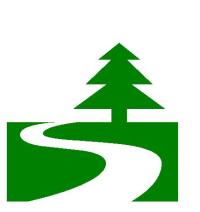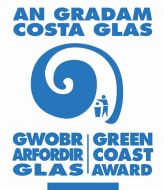 A reader asks, “What do you know about this symbol? It seems to appear on various organisations’ e-mails. Where does it come from? Is it an official symbol? Can anyone use it?”
A reader asks, “What do you know about this symbol? It seems to appear on various organisations’ e-mails. Where does it come from? Is it an official symbol? Can anyone use it?”
The short answer: Anyone can use it. It’s not an official symbol. It’s gained use by popular appeal.
Is it worth using? That’s an entirely different question…
eco-symbols update 2
March 19, 2008
I’ve been in touch with the Green Achiever Scheme about concerns I raised in an earlier entry. The conversation with them gives some good answers, and then some more.
Jyotsna Kotian of Alok Industries Limited, an Indian textile company , commented on my EU Eco-labelarticle asking for some guidance on how to apply. Although I can’t give legal advice, at least I can point them in the right direction. Alok’s Environment, Health and Safety Policy commitments are straightforward and significant. Good Luck to them.
That lead to me correcting a big mistake (that I made) in that article, The EU Eco-label: flowering across Europe.
Two more sites for Recycling Symbols for Print and Web Designers.
Another Finnish site for the Nordic Ecolabel Swan: Scandinavian co-operation.
Edits to the tags to make them more consistent and to connect articles together, particularly Agenda 21. This led in turn to adding more content to Eco-Schools, to reflect its importance as a programmme fitting into Local Agenda 21.
This entry updates parts of the Infomancy Eco-Symbols Series.
Ecolabels: One world, but not one word
March 17, 2008
There are lots of eco-labels for different purposes, and lots of words to name them.
Perhaps as more people write about ecological issues, the tags will help link more articles together.
This list is based on ecolabel in the GEMET Thesaurus(Eionet) and ecolabel on OmegaWiki, with additions as I discover them. Eionet is the European Environment Information and Observation Network. GEMET is their GEneral Multilingual Environmental Thesaurus.
| “ecolabel” | ||
| Български | Bulgarian | еко-етикет |
| Čeština | Czech | značka ekologická |
| Dansk | Danish | miljømærke |
| Deutsch | German | Ökomark, Umweltzeichen |
| Ελληνικά | Greek | οικολογικό σήμα |
| English | English | ecolabel |
| Español | Spanish (Castillian) | etiqueta ecolígica |
| Eesti keel | Estonian | ökomärgis, keskkonnamärgis |
| Euskara | Basque | ekoetiketa; etiketa ekologiko |
| Français | French | écolabel |
| Magyar | Hungarian | ökocímke |
| Italiano | Italian | marchio di qualità ecologica |
| Nederlands | Dutch | milieukeur(merk) |
| Norsk | Norwegian (Bokmål) | miljømerke |
| Polski | Polish | ekoetykieta |
| Português | Portuguese | rótulo ecológico |
| Русский | Russian | экоэтикетка |
| Slovenčina | Slovakian | ekologická značka |
| Slovenščina | Slovenian | ekonalepka |
| Suomi | Finnish | ympäristömerkki |
| Svenska | Swedish | miljömärke |
I am making the information in the Table available under the Creative Commons Attribution 3.0 Unported License.
If you know of any more translations, comment please!
This entry is part of the Infomancy Eco-Symbols Series.
Green Coast Award – enhancing unspoilt rural beaches
March 12, 2008
The Green Coast Award is for beaches in Wales and Ireland which meet EC bathing water quality standards and provide a natural, unspoilt environment, meaning that “the special character of such a beach may not be compatible with the level of infrastructure and intensive management generally associated with more urban, traditional seaside resort beaches”.
The Green Coast Award fills a gap left by the Blue Flag Programme. Like the Blue Flag, the Green Coast Award has clear objectives and community involvement in coastal management.
The original recycling symbol
March 10, 2008

The original recycling symbol was designed by Gary Anderson. He won a contest in 1970 – the year of the first Earth Day – at the International Design Conference in Aspen, Colorado out of over 500 entries. Gary’s original design had the triangle pointing downwards.
The internationally recognisable recycling symbol design of three chasing arrows is sometimes called a Mobius loop, based on August Ferdinand Möbius‘ – a 19th century German mathematician – discovery that a band of paper joined with a half twist forms a continuous single-edged, one-sided surface.
Green Achiever – Silver in sight
March 3, 2008
The Green Achiever Scheme attracted my attention enough to contact them. Mandy Stokes, Director of E4environment Ltd which runs the Scheme, provided some answers to my initial questions, and has now provided more, increasingly overcoming my initial cynicism.
Blue Flag flies standard for beaches, marinas and boats
February 25, 2008
The Blue Flag is an eco-label awarded to thousands of beaches and marinas across Europe, South Africa, Morocco, New Zealand, Canada and the Caribbean.
The Blue Flag works towards sustainable development at beaches/marinas through strict criteria dealing with water quality, environmental education and information, environmental management, and safety and other services. The Programme includes environmental education and information for the public, decision makers and tourism operators. For boats there is a code of conduct.
The Green Key to your holiday
February 20, 2008
Eco-labels are for services too, not just for products.
The Green Key
is a diploma awarded companies within tourism: hotels, youth hostels, conference- and holiday centres, campsites, holidayhouses, leisure facilities and restaurants.


.jpg)


